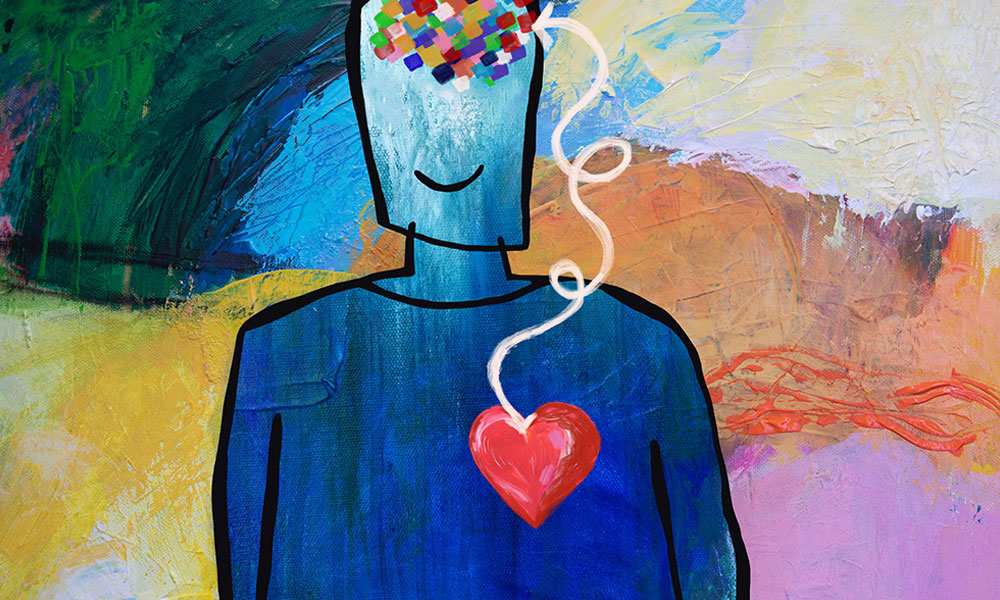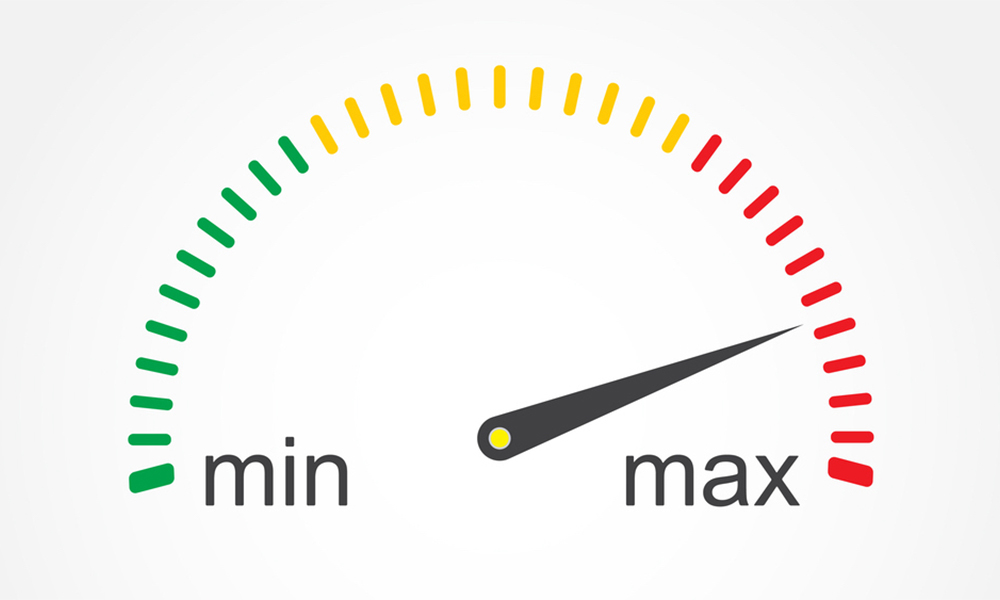In a piece published in Time magazine a couple of weeks ago, Andrew Serazin suggested that it’s time for forgiveness to go viral. I agree wholeheartedly. What better way to end this year of trials and tribulations than on a forgiving note, marked by empathy and humility?
The pandemic has made 2020 a tough year for humankind. Aside from the physical toll of COVID-19, there is a dramatic surge in emotional upheaval, anxiety and depression. While many vaccines are in development and some are already being administered, our mental wellbeing calls for a different set of solutions.
And through all of this, forgiveness is key. Serazin, who is president of the Templeton World Charity Foundation and chair of the Forgiveness Forum, explains it as follows:
Psychologists define forgiveness as a reduction in vengeful thoughts and feelings that is accompanied by an increase in positive thoughts and feelings towards an offending person. I think of it as a kind of psychological alchemy, turning emotional garbage into gold.
So, my final message for 2020 focuses on forgiveness – in a personal as well as professional capacity. What are its benefits, and why is the ability to forgive a crucial skill for leaders?
Forgiveness in the time of COVID-19
The pandemic has placed immense pressure on all of us, leading to greater polarization and conflict – from quarrels with colleagues due to work-related uncertainties, to disagreements with family and friends over safety protocols, to arguments with teachers about the best way to handle children’s education.
In these heated situations, made worse by collective stress, forgiveness offers a surprisingly effective way to dissipate the anger and move forward. If that sounds unrealistic or utopian, recall post-apartheid South Africa for a moment. After Nelson Mandela assumed political power, there were loud demands for a turning of the tables and revenge against his predecessors. Instead, Mandela chose a racially integrated cabinet and established the Truth and Reconciliation Commission, allowing the fractured nation a chance to heal and forge ahead.
The grim reality of living through a pandemic has motivated several people to forgive old grudges and take steps towards mending estrangements. There has been a sweeping realisation that life is too short to remain mired in anger – and that we don’t, in fact, have all the time in the world. Many people have also re-examined their priorities and put relationships at the top of the list, which is another reason behind the recent reconciliations among family and friends.
To put it another way, anger puts you in a prison – while forgiveness sets you free. People who let go of long-held grudges often talk about “a heavy weight” being lifted off their chest or heart
The gift of forgiveness
Not only does holding on to vengefulness tear apart families, organisations and countries, but it also has a huge impact on your personal wellbeing. Not being able to forgive harms you most of all. Held hostage by anger, you get trapped in a state of hurt and pain. The constant bitterness hampers your peace of mind and joy. To put it another way, anger puts you in a prison – while forgiveness sets you free. People who let go of long-held grudges often talk about “a heavy weight” being lifted off their chest or heart.
The scientific evidence is also compelling. People who are more willing to forgive are healthier. Along with being less likely to face anxiety and depression, they also tend not to smoke and drink in excess. Incredibly, forgiveness also provides cardiovascular protection – lower levels of bad cholesterol, lower blood pressure and a healthier response to stress. Conversely, withholding forgiveness causes the body to release stress-response chemicals.
What forgiveness is not
It’s also important to clarify what forgiveness is not. Let’s clear up some mistaken notions.
- When you forgive someone, it doesn’t mean you forget what happened, condone the behaviour or absolve the other person of responsibility. As Desmond Tutu notes in his book, No Future Without Forgiveness:
In forgiving, people are not asked to forget. On the contrary, it is important to remember, so that we should not let such atrocities happen again. Forgiveness does not mean condoning what has been done. It means taking what happened seriously and not minimizing it; drawing out the sting in the memory that threatens to poison our entire existence.
- Forgiveness is not the same as reconciliation. Reconciliation requires both (or all) parties to be receptive and get involved. Forgiveness, on the other hand, can be a unilateral action. The beauty of it is that you are the one in control. It may lead to reconciliation – or it may not.
- We must separate forgiveness from justice. Justice involves concepts like fairness, reparation and restoration of order, whereas forgiveness is motivated by a desire for peace of mind and happiness.
- Forgiveness is not weakness. On the contrary, an act of genuine forgiveness demands immense strength of character. Holding on to anger and feeling vengeful is easy. Letting go of negativity and moving on is a challenge.
A blueprint for forgiveness
Being let down, betrayed or disrespected can leave a bitter taste in your mouth. It’s tempting to nurse a grudge and wallow in resentment, but this only makes you cynical and unhappy. You either become stuck in a state of victimhood or end up inflicting the same wrongs on others.
Forgiveness takes away the negative control the incident exerts over you. It also instantly opens up space for calmness and joy. Research has shown that to reap the full benefits, you need to forgive with your head as well as your heart. Serazin outlines a two-step process:
First, a person makes a commitment to forgive. You write this commitment down, say it out loud, or tell a friend about it. All of this targets cognitive and rational faculties in the brain. The second step involves thinking about what it will look and feel like to forgive. Here the process involves visualization, imagination, and storytelling. It can take the form of spoken words, a physical gift, or a letter.
Another vital aspect is forgiveness towards yourself. People with a high sense of personal responsibility struggle with this a lot, finding it easier to forgive others or mediate a reconciliation than to show themselves the same compassion. As Dr. Shawne Duperon, founder of the Project Forgive Foundation, says:
Forgiving yourself is one of the hardest things to do. Yet, when you don’t forgive yourself, you only perpetuate and relive the damage that’s been done.
Forgiveness as a leadership skill
The ability to forgive isn’t something we talk about very often in a corporate setting – but it should be. Unforgiving leaders end up creating toxic work cultures, marked by combativeness, backbiting and inefficiencies.
When team members realise there is no possibility of being forgiven, they become reluctant to admit mistakes and tell you the truth when you need to hear it, leaving you blind to weak spots. Motivated by fear, they spend precious time tracking one another’s mistakes, costing you dearly in terms of productivity. Issues that could be quickly resolved turn into long-drawn-out battles, creating unnecessary drama and hostility.
A forgiveness-oriented culture, starting with the top brass, is the antidote to all of the above. Forgiving a team member gives your relationship a new lease of life and paves the way to restoring trust. It allows them to take responsibility, start making amends and strive to do better in the future. When leaders role model forgiveness, it travels down the ranks as well, fostering an environment that is empathetic and cooperative.
Forgiveness comes into play in other workplace scenarios as well, say, a deep-rooted division within the company or a contentious merger. Here, leaders with the ability to forgive can heal the breach and restore the organisation to greatness. As Harvard Business School Professor Rosabeth Moss Kanter puts it:
One of the most courageous acts of leadership is to forgo the temptation to take revenge on those on the other side of an issue or those who opposed the leader’s rise to power.
Researchers from the University of Michigan prescribe a number of leadership strategies to facilitate a culture of forgiveness within the organisation. Here are five recommendations that resonated with me:
- Acknowledge anger and resentment. Recognize that forgiveness does not occur quickly. Allow time for grieving.
- Provide opportunities for interaction and conversation. Forgiveness usually requires opportunities for verbal expressions, empathetic listening, and human support.
- Provide opportunities to develop and display positive affect, often by doing good as well as doing well. Find ways for victims to serve others. Allow people to practice giving.
- Honour justice and equity. Work toward justice for offenders as well as restoration for those harmed. Most people have difficulty forgiving in the absence of justice, apology, or restitution.
- Gather and record stories and examples of virtuousness…. Stories and scripts that define the core values of the organization contain examples of forgiveness and virtue.
2020 has been a difficult year, one that has tested all of us in unprecedented ways. Instead of wasting time and energy on destructive emotions like anger and blame, let’s make a choice to enter the new year with forgiveness and a lighter heart.








Comments